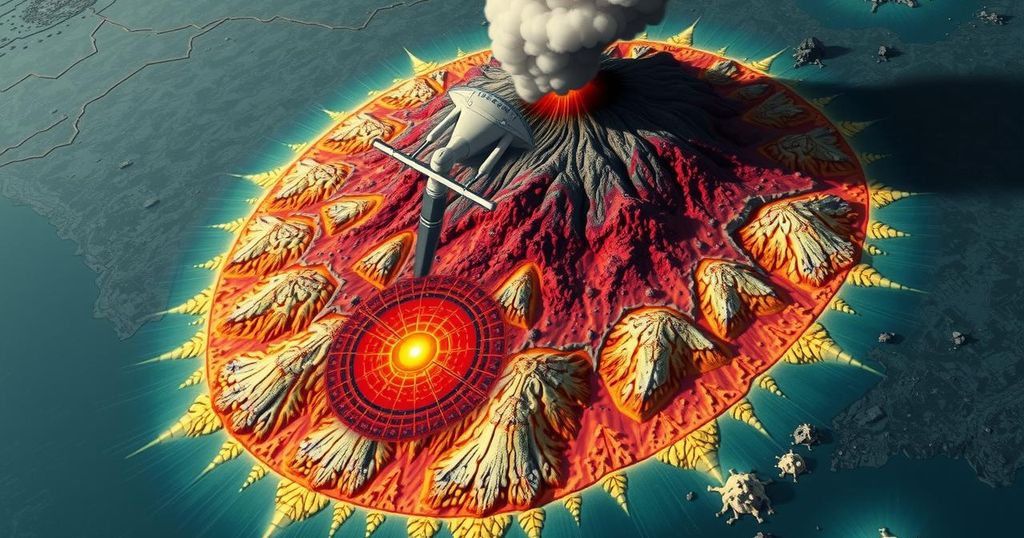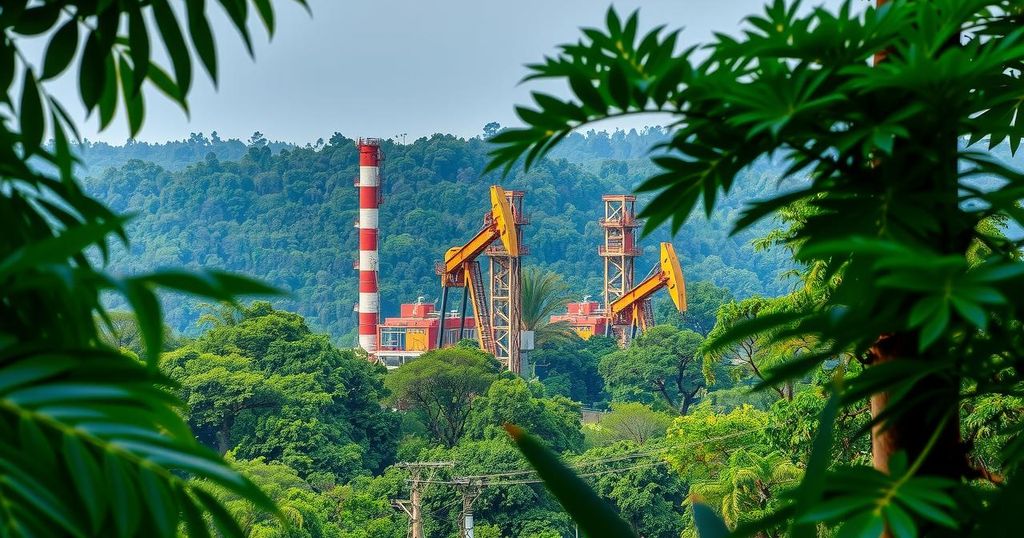Magnitude-5.8 Earthquake and Volcano Eruption in Ethiopia Raise Concerns for Region
A magnitude-5.8 earthquake struck Ethiopia near Addis Ababa on January 4, 2025, with potential for increased seismic activity. Concurrently, Mount Dofan erupted, leading to evacuations. Experts warned about the risks of additional geological disturbances that may impact the Grand Ethiopian Renaissance Dam and its implications for Egypt and Sudan.
On January 4, 2025, a magnitude-5.8 earthquake occurred in Ethiopia, affecting areas near Abomsa and Amhara, relatively close to the capital, Addis Ababa. The earthquake’s epicenter was determined to be at a depth of 10 kilometers by both the Ethiopia Geological Institute and the United States Geological Survey (USGS). Experts expressed concerns that the tremors might increase in intensity, as evidenced by seismic activity that had already escalated throughout the day.
In conjunction with the seismic event, Mount Dofan Volcano in the Afar region has erupted, causing authorities to advise thousands of residents to evacuate to temporary shelters. Additionally, large fissures in the ground have been reported, indicating heightened geological activity in the vicinity. Abbas Sheraqi, an Egyptian geologist from Cairo University, noted that such seismic activities could indicate further risks, particularly regarding volcanic activity that could affect neighboring draught-prone regions, including the volcanic area of Fentale.
Sheraqi also voiced concerns regarding the Grand Ethiopian Renaissance Dam (GERD), reaffirming the importance of prudently managing such geological upheavals to prevent catastrophic outcomes for neighboring countries, specifically Sudan and Egypt. Despite prolonged negotiations and attempts to find a binding agreement for water management featuring the GERD, the negotiations have largely stalled as Ethiopia continues operations that have raised alarms among its downstream neighbors.
The recent earthquake and volcanic activities in Ethiopia underscore the region’s geological instability, which has heightened concerns among neighboring countries regarding water security and disaster preparedness. The Grand Ethiopian Renaissance Dam has been a focal point of contention between Ethiopia, Egypt, and Sudan, as disputes regarding water rights persist amid Ethiopia’s insistence on proceeding with dam fillings and operations without consensus. The potential link between seismic activities and volcanic eruptions further complicates an already tense regional situation, making precautionary measures vital for local populations and neighboring states. Understanding the geological context of this region and its history of seismic events can provide insight into the current developments, including how they may impact ongoing negotiations regarding the GERD and regional water supplies.
In summary, the magnitude-5.8 earthquake and the eruption of Mount Dofan in Ethiopia highlight the pressing geological challenges faced in the region. The urgency for evacuation among residents emphasizes the need for preparedness in light of potentially more severe seismic and volcanic activities. The ongoing disputes over the Grand Ethiopian Renaissance Dam continue to complicate relations between Ethiopia, Egypt, and Sudan, underscoring the stakes involved as all parties navigate safety and resource management amid escalating natural threats.
Original Source: www.egypttoday.com




Post Comment